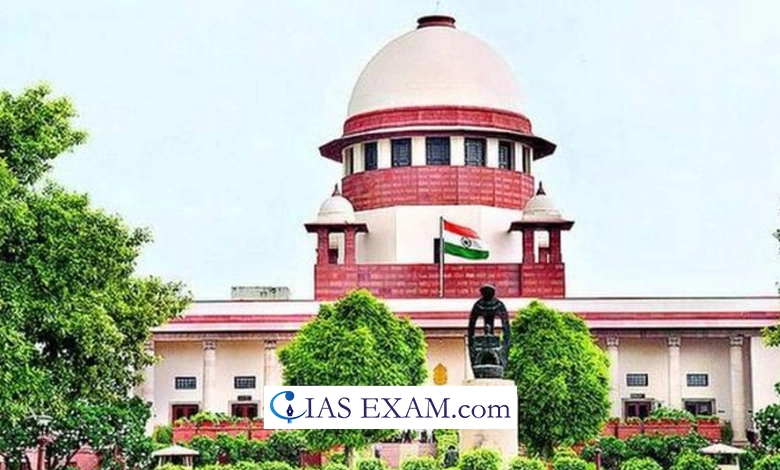SC dismissed Petition to end collegium & Revive NJAC
Syllabus: Governance [GS Paper2]

Context
The Supreme Court of India has dismissed a petition to do away with the collegium system in judges’ appointment and make the National Judicial Appointments Commission (NJAC) Act to come back into force again. These decisions bring in many logical ramifications to the legal system of India and the goodwill of the nation.
Key Highlights
- Collegium System Origins:Established in 1993 by virtue of court judgments, the Collegium system constitutes a body of experienced judges responsible for the appointment of candidates to higher judicial positions in India.
- Transparency Concerns:The challenge comes from the voters’ perceived transparency, fairness and impartiality issues that have been used by the allegation of nepotism and favouritism.
- Introduction of NJAC:In 2014, NJAC (National Judicial Appointments Commission) Act was proposed as a substitute for the Collegium system. The main goal was to establish with the then six-member independent Commission, which would be handling the process of judicial selection while keeping it away from the influences of political processes.
- Composition of NJAC: The NJAC was composed of the Chief Justice, senior judges, the Law minister, and two appointees selected by the Prime Minister, an attempt to combine the interests of the judiciary and the executive in the selection process.
- Controversy and Supreme Court Intervention:The NJAC Act caused quite a stir as it was referred to the Supreme Court and the opponents claimed that it would jeopardise the independence of the judiciary and the federal structure. Criticism of the Act was to the point that the national leadership acted outside of judicial responsibility and became the ultimate arbiter.
SC’s Decision, it’s reason and implications
- NJAC Act Ruled Unconstitutional:Ironically, the Supreme Court ruled the NJAC act unconstitutional, as the court stated that it violated the independence of the judiciary and was an infringement of basic principles of constitution.
- Preferability of Collegium System:The subject above dedicated some lines to the imperfections of the collegium system, but it showed its contest at the NJAC law by standing for the ability of judiciary’s independence, which is better with the former than the latter.
- Reasons for Rejection of NJAC Act:The court viewpoints a number of concerns like threats to judicial independence, breaches of constitutional structure, use of parliamentary whips who may undermine the judiciary, and deficiencies in the given alternative system.
- Implications of Supreme Court Decision:The judgement entails great importance for Indian judiciary and democratic form of government, whereby the sustenance of collegium system, the requirement for changes to promote transparency and accountability, the reinforcement of judicial independence, the delimitation of executive’s powers in the appointments of judges, and a well-functioning impartial judiciary are emphasised as vital factors to continued democracy in India.
Conclusion
The Supreme Court has once again insisted on the independence of the judiciary in India, by rejecting the petition to abolish the Collegium system and revive the NJAC Act. Hence, reforms whereby transparency is more highly valued, and which strengthen the judiciary’s independence, are invaluable for the country’s democratic progress.
Source: The Hindu
UPSC mains Practice Question
Q. The Supreme Court’s decision to uphold the collegium system for judicial appointments has reignited the debate over the process of appointing judges to constitutional courts. In this context, critically analyse the collegium system and the proposed NJAC, highlighting their respective merits and demerits.





.png)



